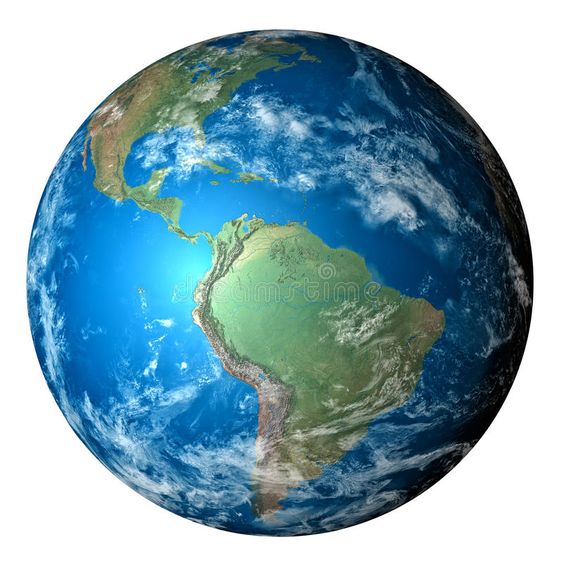
The Americans, Australians and British are very happy with the new nuclear sub deal and creation of new alliance but the French are furious with three allies.
By Tom Arms
The Anglo-American decision to sell nuclear submarines to Australia has launched a new round of geopolitical musical chairs with long-lasting repercussions.
The Americans, Australians and British are very happy with their new seats and the new nuclear sub deal and the creation of a new alliance called AUKUS.
The French are furious with the three allies. They have been left standing on the outside. It completely scuppers their $50 billion deal to sell the Australians electric submarines. It also weakens the Franco-British defence agreement that had become one of the pillars of the Western Alliance. “It is a stab in the back,” exclaimed the furious French foreign minister Jean-Yves le Drian.
The Chinese are, of course, livid. Beijing has denounced the move as “extremely irresponsible,” “narrow-minded”. They said it also threatens to “intensify the arms race.” British PM Boris Johnson claims that the submarine deal is not adversarial. This, of course, is another one of his outrageous lies which only increases the unbelievability of almost everything he says.
A slew of other countries will also be examining their strategic priorities. Russia, will of course, will be delighted by anything that diverts British and American resources and attention away from the European theater.
India is already a member of the exclusive nuclear submarine club. But it only has one. Australia is likely to be supplied with half a dozen, almost putting it on a par with France’s eight. The Indians could easily use the new shift to justify increasing its nuclear fleet, especially as it is being courted by Britain, America and Japan as an Asian counterweight to China.
One of the reasons for arming Australia is growing concern about Chinese activity in the South China Sea and East China Sea. Vietnam, Malaysia, Brunei, Indonesia the Philippines and Japan have all lodged claims on the strategic waterways to which China has claimed exclusive use. It is backing up those claims with a series of military installations. All of the rival claims are backed by the West and should be encouraged by the arrival of half dozen regionally-based nuclear submarines. But at the same time they have to tread warily because their economies are now heavily dependent on the Chinese dragon.
Chinese economic power is also causing some Australian analysts to question the wisdom of the move. China is Australia’s biggest trading partner—a quarter of all exports. The conservative government of Scott Morrison has ignored Australia’s dependence on the Chinese market with several anti-Chinese political statements.
The Chinese were particularly vexed about Canberra’s call for an independent investigation into the origins of the Covid virus. Beijing responded to the calls for an investigation with restrictions on Australian food and wine imports. So far untouched is Australia’s high-quality coal exports which power China’s coal-fired power stations. Their mutual dependence on the solid fossil fuel has given the two countries common cause as climate change outliers. That may change at the Glasgow climate change conference in November.
Taiwan is another big regional flashpoint. In recent years it has been feeling its way towards relinquishing its claim to the title of legitimate government of Mainland China for the position of separate independent nation. This is total anathema to Beijing who maintains that the island country is a province of Mainland China and has made its absorption into the mother country a key element of their foreign policy. Taiwan, of course, welcomes America’s defence commitment and now—by extension and association—Australia’s implied commitment. But at the same time, it is concerned about upsetting the carefully balanced geopolitical apple cart and prompting a pre-emptive Chinese attack.
Finally there is North Korea which this week tested a new round of missiles capable of carrying nuclear warheads. The Americans have 25,000 troops based in South Korea, but the presence of six regionally-based nuclear submarines will be welcome. South Korea, for its part joins the rest of Asia in having to tread a careful line between security needs and economic dependence on China.
Then there is the British. Boris Johnson has announced a Global Britain Policy with a renewed emphasis on Asia – A sort of East of Suez Policy for the 21st century. Of course, East of Suez was abandoned in 1968 because of the UK could no longer to afford to pay the costs of defending the trading links of a far-flung empire. Shortly afterwards, post-imperial trading contacts were replaced with membership of the European Common Market.
Having led his country out of the EU, Johnson’s Global Britain policy appears to be returning the UK to East of Suez backed up with a military and diplomatic establishment that is a shadow of its 1960’s self. The one thing he appears to be doing right is using Australia as a British proxy and at the same time making money out of the deal by selling them nuclear submarine technology. Not so good, is that another leg of their Global Britain Policy is beefed up trading relations with China.
Another reason for British support is the need to strengthen trading relations with the US in a post-Brexit world. Currying Washington’s favor by following America’s diplomatic and defence lead is part of that policy, as it has been for most of the post-war period. America is, of course, reinforcing the Asia Pivot that started in 2012 under Obama and has now been stiffened by two successive administrations. Concerned about the rise of China, the State Department and Pentagon are worried that their resources are being overstretched and want Europeans to take more responsibility in Europe, the Middle East and Africa so that they can focus on the Asia-Pacific region.
- Afghanistan has started to drop off the news headlines of the Western media. It is done and dusted. The troops have withdrawn along with the cash hand-outs. Afghanistan is no longer a responsibility or interest. If only there was nothing to be interested in. Unfortunately that is not the case. As predicted, the Taliban is proving to be a loose coalition that is quickly falling apart along centuries-old tribal lines and more contemporary political axes. Politically, there is a moderate faction led by Deputy Leader Abdul Baradar, who has promised an end to Afghanistan as a terrorist base and education for women (within Islamic law). There were reports that he been killed in a presidential palace shoot-out by his main opponent Khalid Haqqani. Baradar was forced to appear before the television cameras to deny the reports, but rumors of dangerous dissension persist. Haqqani is on the FBI’s most wanted list and leader of the hardline Haqqani faction. Backing him up in the government are two his nephews, Sirajuddin Haqqani (also on the FBI’s most wanted list) and Anas Haqqani. Members of the Haqqani faction are believed to have links with ISIS-K who were responsible for the bombing of Kabul Airport which killed 200 people. While the government falls apart nicely, the people of Afghanistan are literally dying of starvation. The UN reports that four million Afghans are in immediate danger. Their fate is further exacerbated by a severe drought in 25 of the country’s provinces and the fact that there is no money to buy seed for the crucial winter crops. The UN’s Food and Agricultural Organization has promised to release funds to pay for the winter seed—but only if it is reassured that a government capable of distributing money and seeds is in charge in Kabul.
- A story which so far has not made it near the Western news headlines is the impact that Covid is having on child labor in the developing world, especially in Sub-Saharan Africa. The International Labor Organization (ILO) reported that between 2016 and 2020 the incidence of child labor around the world had risen to 160 million, with most of it Sub-Saharan Africa. Then came covid and the closure of schools across the continent. In some mining districts, the number of children breaking and sorting rocks rose by 50 percent. The ILO reckons that 39 million children under the age of 15 are involved in dangerous work in the mining and fishing industries. The situation, however, is not completely cut and dry evil versus good. Seventy percent of the child laborers work on family farms. Without their help the family would go hungry. The answer appears to be reducing poverty levels so that families can afford to send their children to school to play and learn rather than push them into the fields and mines. One solution might be a program being promoted by the World Bank whereby poor families are paid to send their children to school in order to replace the money they would have earned in the field. Of course, this requires the schools to open which in turn depends on an end to the pandemic. There is no sign of the latter, especially as the developed world is being slow in supplying the required vaccines.
- France—the international home of Liberty and libertarianism coupled with muleheadness—was the leading anti-vax nation. In December, 60 percent of the population said they would refuse to be jabbed. Then in mid-July, President Emmanuel Macron announced the introduction of the Covid passport. If you wanted entry into sports stadiums, night clubs, trains, planes or cinemas, you had to produce a document proving you had been or tested. The libertarian right and left cried foul. There were massive street demonstrations. There was a heated dusk to dawn debate in the National Assembly. Macron stuck to his guns. The people caved in. A return to normality and the good life trumped libertarianism. Within hours of Macron’s announcement one million people volunteered to be jabbed. By the end of August 74 percent of the French population had been vaccinated with at least one dose. Other European countries (Italy, Denmark and Greece) have adopted similar programs with similar results. Britain has considered but for the time rejected vaccine passports and death rates are rising. Germany is another outlier. Biden has made vaccinations compulsory for 100 million workers and vaccination rates have jumped five percentage points, despite objections from Republican states. Both France and Biden’s America prove that a stiff resolve coupled with rewards defeats the anti-vax conspiracy theorists.
[author title=”Tom Arms ” image=”https://sindhcourier.com/wp-content/uploads/2021/05/Tom-Arms-Journalist-Sindh-Courier.jpg”]Tom Arms is foreign editor of Liberal Democrat Voice. His book America Made in Britain will be published on 15 October and can now be pre-ordered on Amazon. [/author]
